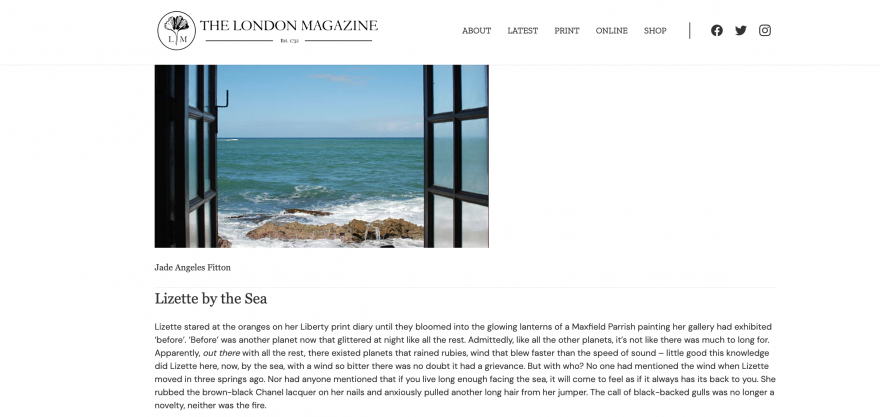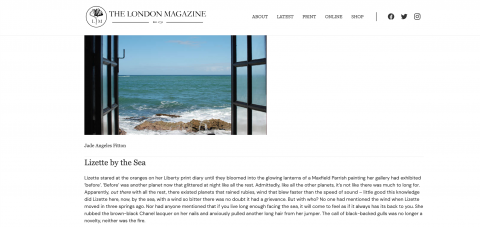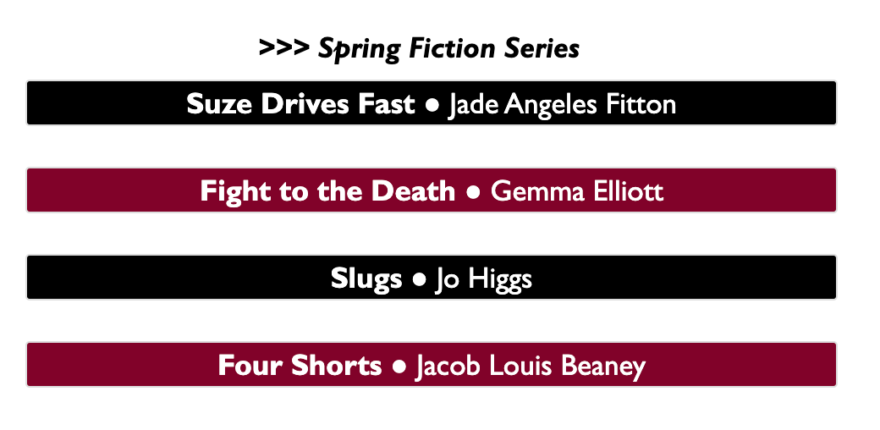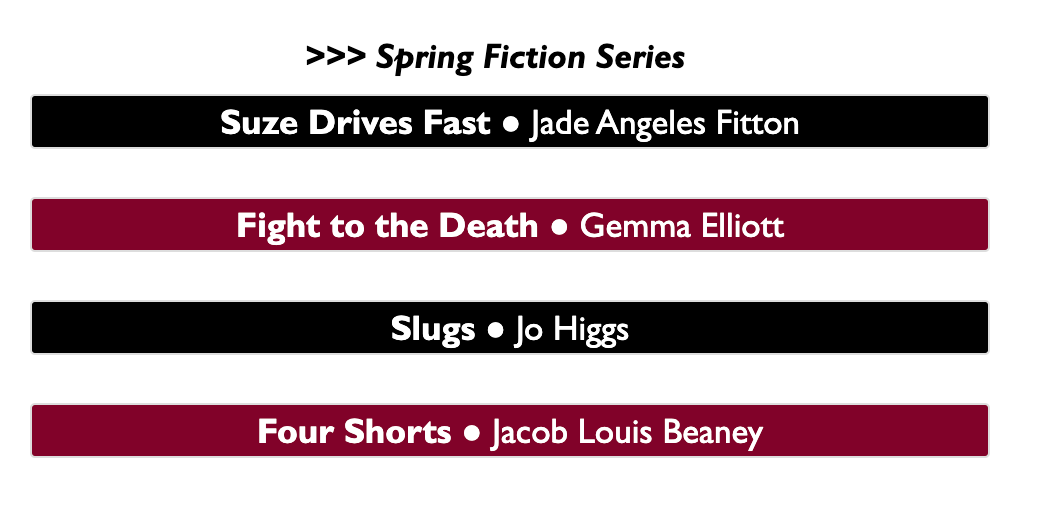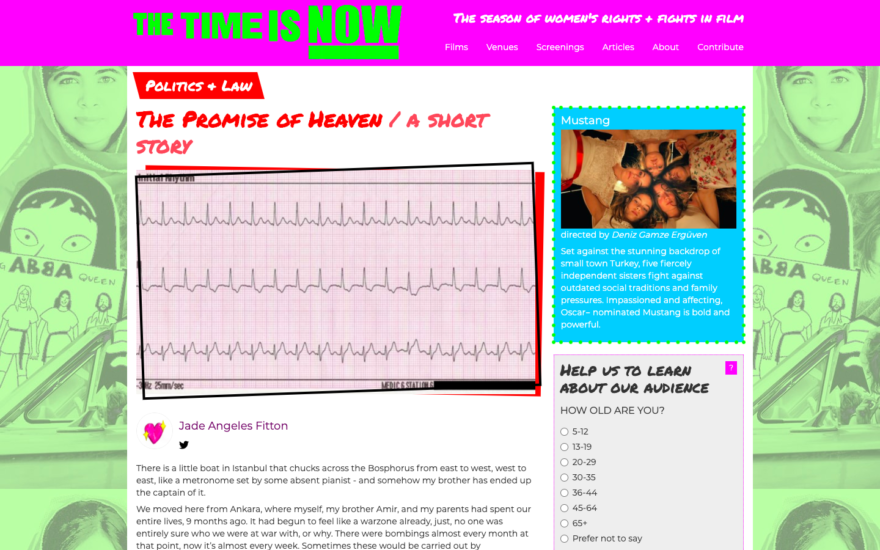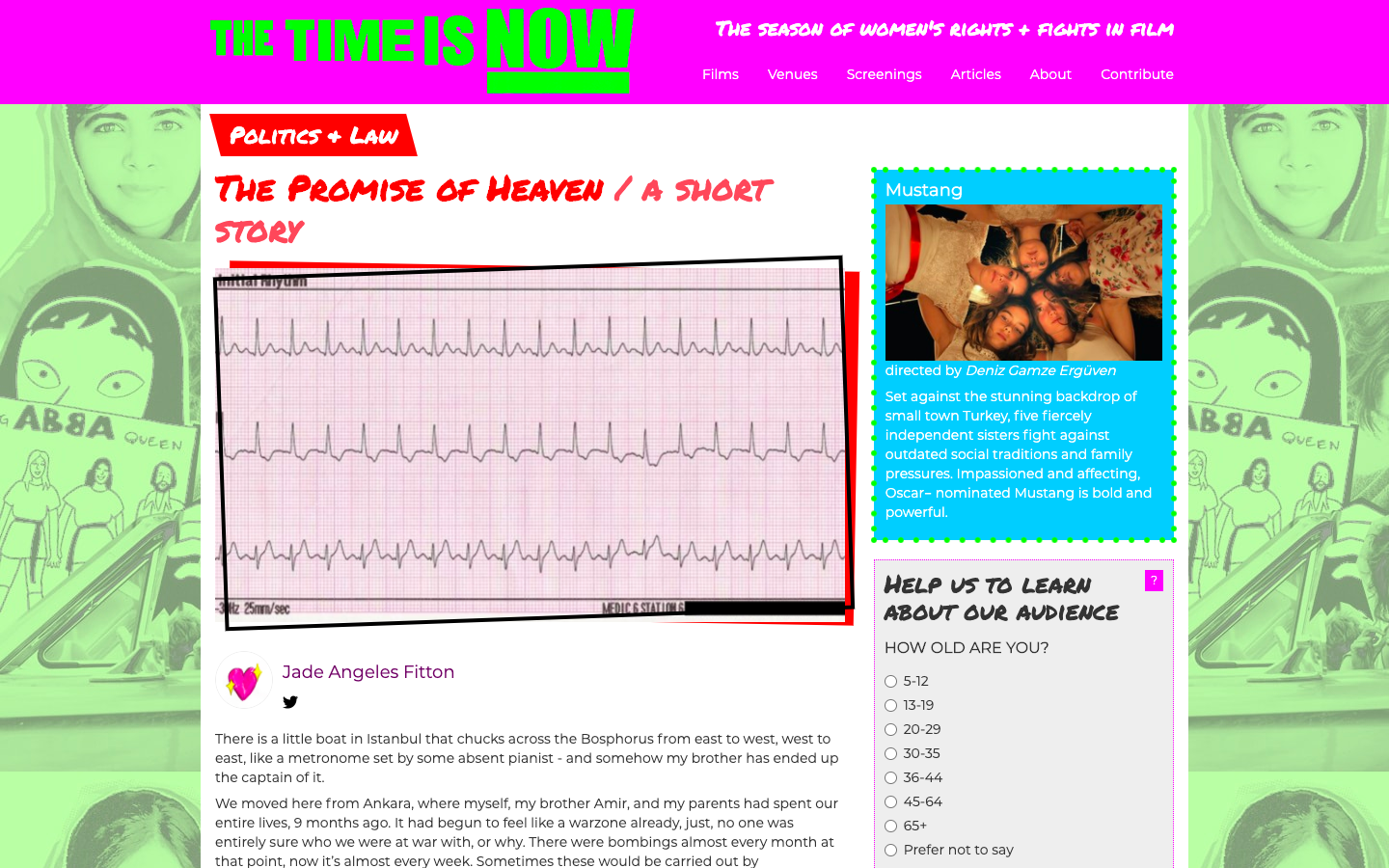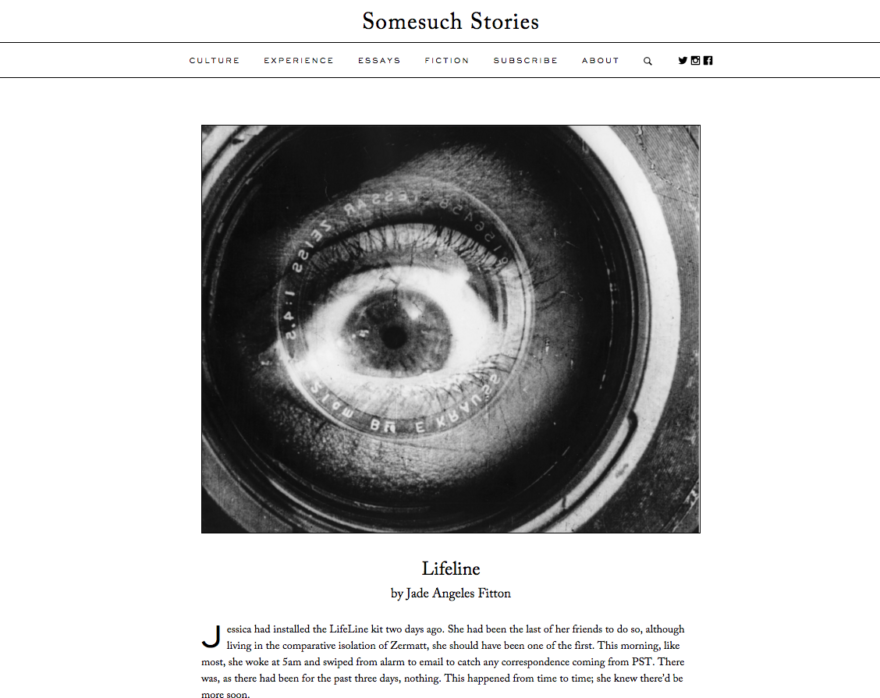
†
London, you are usually overcast when I visit you. Maybe twice a year when I’m up you’ll be blazing hot and people will be outside drinking like Europeans on the continent, but without the European tact of stopping before they’re sick.
The last time I came to visit you was only a week ago, for a funeral. Not ‘a’ funeral; the funeral of my godmother, who had lived in the same house in Battersea my entire life, had always had both fire and central heating on, and had been an invisible pillar in the structure of my life; there for me to lean on if it ever got bad enough. Invisible only in the fact that I never felt it had got bad enough for me to lean on her, and so I hadn’t truly realised what a fixture she was until she was gone.
You were grey the day of her funeral too, not warm either. But she had left you on your sunniest day, just before the super moon.
Now, there is one less person in this world I can lean on, so I imagine her invisible column bolstering my spine and promise to stand up taller for the rest of my life.
This week (and, I brace myself at the thought: for the next two weeks) I am up for work and I thank the indian summer that you are not yet at your bleakest. Your thin laced, blue-grey skies are still off-set by the leaves on your few remaining trees; green if evergreen but burnt, bright, red in the vines on the outskirts of town.
In Victoria however, you are at your greyest. I slowly slalom my way out of the underground and try to prepare myself for human interaction, to remember to “SMILE”, because people don’t like girls who don’t smile. You get told to “cheer up”, regardless of whether cheering up is conducive to a good production or not, or really, whether it’s conducive to being sane. But I’m not high enough up the chain or far enough in the belly of these things to start exercising my opinion, unless it is positive. I know my place in their eyes.
Fortunately, I also know my place in mine.
So I set myself up for all this; for the advertising producer to eye me up, and not quite understand me or be able to file me away somewhere so instead he’ll treat me with slight distrust. Like a spicy desert or a tame dingo that could turn feral again at any moment and maul everyone at the Perspex table we meet on. I prepare myself for this.
People walk and storm past me, with varying huffs and struts of importance. I wish they wouldn’t all wear grey and black. Though I am wearing black, and I do very much like grey; and that bright computer blue of that lady’s coat is horrible but I do wish people could create a more pleasing palette to walk among.
I keep in mind I am the person I find disheartening; I am wearing black and I am looking at my phone trying to find my way to the production office. But, for once, I am not in a rush.
Things change.
As I turn off the grey street with its glasshouse shops and steel ship architecture, there’s a bustle of red brick and green leaves, and between the two worlds is Westminster Cathedral, though I don’t realise it is Westminster Cathedral until I get closer because I’ve never been there before, but I suppose you know that. I did know it must be some sort of cathedral, or maybe I thought it was a church at this point, but what’s the difference. (I’m not asking).
On the steps a girl flamboyantly crosses herself before she goes off to a purposeful and confident days work, brimming with the holy spirit in her navy, satin puffer coat – it looks warm.
I creep inside the Cathedral. It’s better than I expect, large and long and cavernous, with paintings and mosaics of saints, cornflower blue seeping through the honeycombed windows, green and ochre wood-like marble columns support the heavy, empty ceilings; cloistered men chat in red by the pews and lights dangle from wrought iron chandeliers.
I walk down the aisle and feel the cool air as I breath. ‘Cathedrals always make me cry.’ I think as I feel the tears coming, but I don’t like crying so much anymore so I wonder why my eyes fill instead and clear them with thought. I think of all the souls, wishes, despairs, hopes, sins, secrets, notes that were sung, they still hang in the air; it’s all here in the atmosphere and it’s almost overwhelming. Imagine if they’d lit the incense. I wish they’d lit the incense.
I hear a lady’s knee crack as she gets up from her prayers.
This calms me down.
There are about 10 people including myself scattered around the brown benches; we seem to all be from different continents, which is very diverse of us. I choose a pew alone on either side, I need room for my thoughts – I like to observe, but need the privacy to think. The thrill of the voyeur is stolen if one is being observed oneself, but I feel no eyes on me here. It is a great relief.
I watch a priest prepare a white-clothed table beneath a huge, pillared temple-thing, I suppose there’s a word for that, my mum and sister probably know it. I however, do not. So to me, it is a huge Greek temple stuck in the middle of the cathedral, and that is impressive. The priest is going about laying the table, preparing it endlessly under gold white light and I drift away from him. As he continues to go through the motions, he blurs and clouds and my minds eye comes into focus. I imagine an easier life.
I don’t know what I would ask from God anymore, I’ve asked for most and am still waiting for the vast majority. I understand that with some things, like the chick I accidentally killed when I was three going to heaven, it’s hard to tell if He followed through or not, but other stuff like, ‘give me a break’ or ‘cash injection please’ it’s become increasingly apparent the Holy Spirit won’t be intervening on my behalf anytime soon. So I just sit and instead imagine what might lie ahead of me today and how I can make it easy on myself.
Just be easy on yourself.
With that decided I get up, St Barnabas in mosaic to my left, royal blue and beaming I find him quite a humorous and comforting chap.
I know I am leaving now. I light a candle because I have change and it’s a nice thing to do. I watch the flame bloom and cradle my fingers around it for a few moments, then wonder if I can take it with me. Then, know I can’t.
A few paces in front of me and to the right, just off the exit passage (whatever that’s called) I find an entirely sparkling room: the ceiling all in metallic glistening mosaic, Jesus and Latin in sparkling tiles and an old lady who has been there a while.
She’s illuminated in every direction by a thousand glass stars. She seems the centre of this little universe, so I leave her alone to be restored by the glitter.
As I make my way out I think I don’t have anything against religion; but then my brain rises with ‘OH! Jade. But the wars and the horror that has been waged and is waged in the name of religion.’ I pause in thought, momentarily appalled by myself for even thinking such a frivolously backward thing.
Then, as always, something lurches forward to defend me, this time from, myself.
‘Thank you social conditioning, but no; I don’t think I do have anything against religion, by religion I mean it’s very essence: spirituality. Religion at its base teaches one very simple concept that is very hard not to agree with, love and tolerance. (Oh so that’s my opinion. Feels slightly dangerous to have one … maybe it’s not the right one. How much do I care if it’s not? ‘)
I have plenty against people. I have plenty against people who can’t see past the picture to the meaning, or who distort and warp and complicate it beyond recognition. Who use it for gain or greed, to use their given name for “it” to kill. I have plenty against them. Because people seem to do a very fine job of abusing, deceiving and slaughtering each other without the bastion of religion. We are usually the problem.’
Like a finger pointing at the moon, we must remember to see the moon, not the finger.
So no, in here, I feel safe. Protected from the deluge of aspirational mentality that is now the lifeblood of London. It’s hollow and fake and it makes me sick. But I need the money, and that, unfortunately, is another mentality.
For now though, I am still here in Westminster Cathedral and in a sense, because I have been here, I am always here in this ever expanding moment that runs like a race track through time.
No, I have nothing against religion itself and little against you, London. Little except for the fact you are no longer my home. And though I know you so well, you aren’t mine anymore. So I don’t mind your grey skies so much, I won’t be long under them, because I do have enough against you to stay away.




